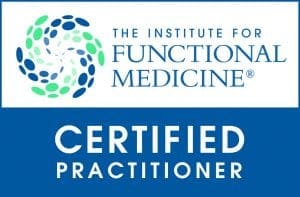Introduction Dr. Jimenez, D.C., presents how chronic metabolic connections like inflammation and insulin resistance are causing a chain reaction in...
Category - Gut and Intestinal Health
Gut and Intestinal Health: The health of an individual’s gut determines what nutrients are being absorbed along with what toxins, allergens, and microbes are being kept out. The gut and intestines are directly linked to the health of the whole body. Intestinal health could be defined as optimal digestion, absorption, and assimilation of food being consumed. However, this is a job that depends on many other factors that can determine a healthy body. More than 100 million Americans have digestive problems and there are two of the top-selling drugs that are for digestive problems, and they run in the billions. There are more than 200 over-the-counter (OTC) remedies for digestive disorders and these can and do create additional digestive problems.
If an individual’s digestion is not working properly, the first thing is to understand what is sending the gut to be out-of-balance in the first place.
From low-fiber and high-sugars to high-calorie diets can cause all the wrong bacteria and yeast to grow in the gut and damages the delicate ecosystem in the intestines.
While overuse of medications that damage the gut or even block normal digestive function like acid blockers (Prilosec, Nexium, etc.), anti-inflammatory medication (aspirin, Advil, and Aleve), antibiotics, steroids, and hormones can cause gut dysfunction.
Undetected gluten intolerance, celiac disease or low-grade food allergies to foods such as dairy, eggs, or corn can even cause gut problems and if it is not treated can become chronic.
From chronic low-grade infections to toxins all the way to stress can cause the gut to become imbalanced and change the normal bacteria.
When patients go to see their primary care doctors, visits for intestinal disorders are among the most common trips. Most doctors do not recognize or know that digestive problems can wreak havoc in the entire body, thus leading to allergies, arthritis, autoimmune disease, rashes, acne, chronic fatigue, mood disorders, autism, dementia, cancer, and more.
By having a proper gut and intestinal health is absolutely central to a person’s health since it is connected to everything that happens in the body.
Introduction Dr. Alex Jimenez, D.C., presents how metabolic connections are causing a chain reaction to major chronic diseases in this 2-part series...
Introduction When it comes to the torso is surrounded by various muscles that help protect the vital organs known as the gut system and help with...
Introduction The immune system‘s role is to be the “protectors” of the body by attacking invaders that enter the body, cleaning up...
Introduction The gut-brain axis is fundamental to the body as it communicates bi-directional with the brain and the gut. Separately they provide...
Introduction The digestive system in the body helps with the process of digesting food that the host consumes. The food being digested goes through a...
Introduction The body relies on the gut system to help regulate its homeostasis and metabolize the nutrients for the immune system. The beneficial...
Introduction The gastrointestinal or gut system helps modulate the body’s homeostasis and metabolize the immune system. With its connection to...

















